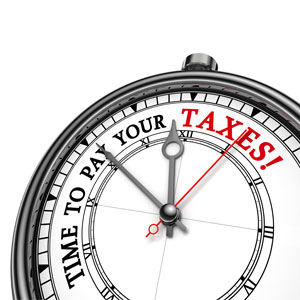The last day for action to save taxes is just round the corner. It is high time that you now take compute the tax liabilities and take necessary steps to reduce your tax liability. However, in this last few days, it is also very easy for you to get carried away and make some mistakes. In this piece, we will give some tips on what you should actually do along with a brief overview of the tax saving avenues…
Last minute tips:
- Calculate your taxable income first and the investments /deductions already made under different IT sections, especially section 80C.
- Don’t rush into long term insurance products in a hurry. The primarily reason for buying insurance should be protection and not tax savings.
- Do not invest in NPS purely to save taxes. NPS is a long term commitment and the new taxation benefits announced will only be applicable in the new financial year.
- Invest only where you understand the product and feel a genuine need for the same.
Explore the following options to save taxes …
- Mutual Fund ELSS schemes: The good part is that your investment can be made easily in a product that has the shortest lock-in period of 3 years and very favourable tax benefits. The safe part is that there is no recurring investments or any sort of long term or future commitment. But one should understand that the investment will be made in equity asset class which may give volatile returns with a fair possibility of both good and not-so-good returns. It is an often recommended product by financial advisors and you should it a good look .
- Term insurance plans: Term insurance offers high level of coverage for the lowest premiums. They are safer as the long term commitment is low and you get the maximum coverage for every rupee that you pay. However, choosing a term plan should be done with care and help of experts / insurance advisors. The process can be completed with payment of premium unless there are some medical tests required.
- Health Insurance cover: This another popular avenue for saving taxes. Healthy young adults without any adverse medical history may still find this option available but one would need to hurry to buy the policy on time as it may take a bit of time.
Common Tax savings sections …
| Section | Maximum limit for deduction /exemption |
| 80C, 80CCC & 80CCD | On investments upto Rs.1,50,000 in multiple instruments |
| 80CCD (1B) | On investments of Rs.50,000 in NPS |
| 80CCG | On investments of upto Rs.50,000 in RGESS (only 50% eligible) for first time investors (till 3 consecutive years) |
| 80D | On health insurance premiums upto to Rs.25,000 self /spouse/ children (Rs.30,000 if either you/spouse is senior citizen) + Rs.25,000 for parents (Rs.30,000 if either parent is senior citizen) |
| 80DD | On actual expenses upto Rs.75,000 (upto Rs.1,25,000 for severe conditions) on maintenance & medical treatment of disabled dependents |
| 80U | If suffering from disabilities or diseases Rs.75,000 (Rs.1,25,000 if severe) |
| 80E | Interest payable on Education loan (no limit) for self /dependent spouse/children |
| 24 | Upto Rs.2,00,000 for home loan interest + 30,000 for home improvement loans |
| 80G / 80GGA / 80GGC | Upto 100% or 50% for donations to charitable funds, institutions, etc or for scientific research or to political parties. Maximum claim normally limited to 10% of gross annual income. |
| 80GG | Lower of Rs.24,000 or 25% income or Rent paid (above 10% of income) for paying rent without HRA |
| 80TTA | Upto Rs.10,000 for savings bank interest received |
Options covered under 80C / 80CCC / 80CCD
| Scheme Name | 1 Year |
| Investments – Debt | Employee Provident Fund (EPF), Public Provident Fund (PPF), Sukanya Samriddhi Account, National Savings Certification (NSC), Senior Citizen’s Savings Scheme (SCSS) Tax Savings Fixed Deposits (5 yrs) |
| Investments – Non-Debt | Life Insurance premium, Pension Plans, New Pension Scheme (NPS), MF Equity Linked Savings Schemes (ELSS), Central Govt. Employees Pension Scheme |
| Expenditures | Principal payment on home loan, Stamp duty /registration cost of house, Tuition fees for 2 children |
